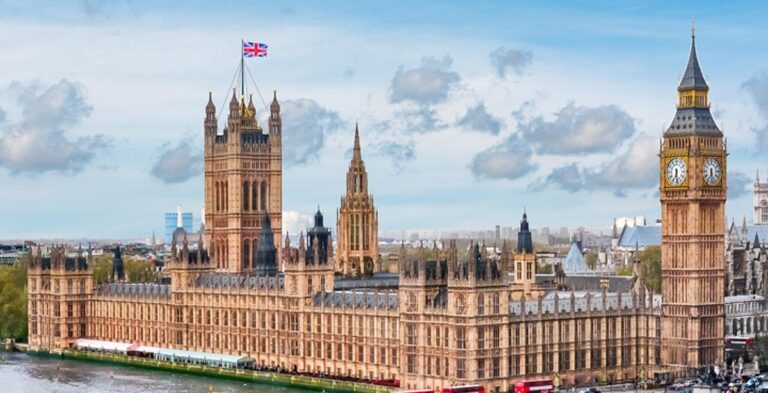The UK government is bracing for a pivotal moment as lawmakers prepare to vote on the contentious welfare reform bill this week. Seen as a critical test of the ruling party’s approach to social policy, the legislation seeks to overhaul existing benefits systems amid mounting political pressure and public scrutiny. With opposition parties and advocacy groups voicing strong concerns, the outcome of the vote could significantly shape the country’s welfare landscape and the government’s standing ahead of upcoming elections.
UK Government Confronts Crucial Welfare Reform Bill Vote Amid Public Backlash
The proposed welfare reform bill, which aims to overhaul the benefits system, has ignited fierce debate both within Parliament and across the UK. Critics argue that the measures risk disproportionately affecting vulnerable populations, including low-income families and people with disabilities. Key points of contention include reductions in certain welfare payments and the implementation of stricter eligibility rules, which government officials claim will encourage employment and reduce long-term dependency.
Public protests and petitions have gained momentum as campaigners call for more comprehensive impact assessments and safeguards to protect those most at risk. Opposition parties and some Conservative backbenchers have voiced concerns, highlighting the potential social and economic consequences. The bill’s supporters maintain that reform is essential for the sustainability of the welfare state amid rising national debt.
- Key welfare reforms proposed:
- Benefit caps lowered
- Revised disability support assessments
- Incentives for jobseekers
- Enhanced fraud prevention measures
| Stakeholder | Position | Main Concern |
|---|---|---|
| Government | Support | Fiscal responsibility |
| Opposition | Oppose | Social impact |
| Disability groups | Criticism | Access to support |
| Public activists | Protest | Equity and fairness |
Experts Analyze Potential Social and Economic Impact of Proposed Welfare Changes
Leading economists and social policy experts warn that the proposed welfare reforms could trigger significant shifts in both individual livelihoods and broader economic dynamics. Critics argue the bill risks exacerbating income inequality while straining public services already stretched thin. Analysts emphasize that changes to universal credit payments and eligibility criteria may disproportionately affect vulnerable groups, including disabled individuals and low-income families.
Conversely, proponents claim the reforms aim to streamline welfare delivery and incentivize employment, potentially reducing long-term government expenditure. The debate centers on balancing fiscal responsibility with social protection, as policymakers weigh short-term hardship against projected economic gains. Key predicted impacts include:
- Increased poverty rates among certain demographics
- Pressure on housing and healthcare sectors due to reduced benefits
- Boost in workforce participation driven by stricter eligibility criteria
- Potential rise in food bank reliance as safety nets thin
| Impact Area | Predicted Outcome | Expert Consensus |
|---|---|---|
| Employment Rates | Moderate increase | Mixed |
| Child Poverty | Likely rise by 5% | High concern |
| Public Spending | Short-term increase, long-term reduction | Divergent |
| Mental Health | Increased strain | Strong consensus |
Advocates Call for Inclusive Policy Discussions and Safeguards to Protect Vulnerable Communities
Community leaders and human rights organizations have united in urging the government to ensure that the welfare reform bill incorporates comprehensive safeguards that protect the most vulnerable populations. These advocates emphasize that policy development must be rooted in genuine consultation processes, involving direct input from affected groups, including disabled individuals, low-income families, and ethnic minorities. They warn that without inclusive dialogue, the reforms risk deepening existing inequalities and exacerbating social marginalization.
To facilitate more transparent and equitable discussions, many suggest implementing key measures such as:
- Mandatory impact assessments focused on vulnerable demographics
- Regular public forums and stakeholder panels during the legislative process
- Independent oversight committees to monitor rollout and outcomes
| Policy Area | Proposed Safeguard | Status |
|---|---|---|
| Disability Support | Tailored benefit eligibility assessments | Under Review |
| Housing Assistance | Prevent eviction protections | Pending Debate |
| Child Welfare | Enhanced funding for early intervention | Recommended |
Key Takeaways
As the UK government prepares for a pivotal vote on the welfare reform bill, all eyes remain fixed on the outcome and its implications for the nation’s social safety net. The decision will not only test the cohesion of the ruling party but also signal the government’s approach to addressing economic challenges and social welfare. Stakeholders from across the political spectrum and the wider public will be watching closely as Parliament takes this critical step, which could shape welfare policy and public discourse for years to come.




